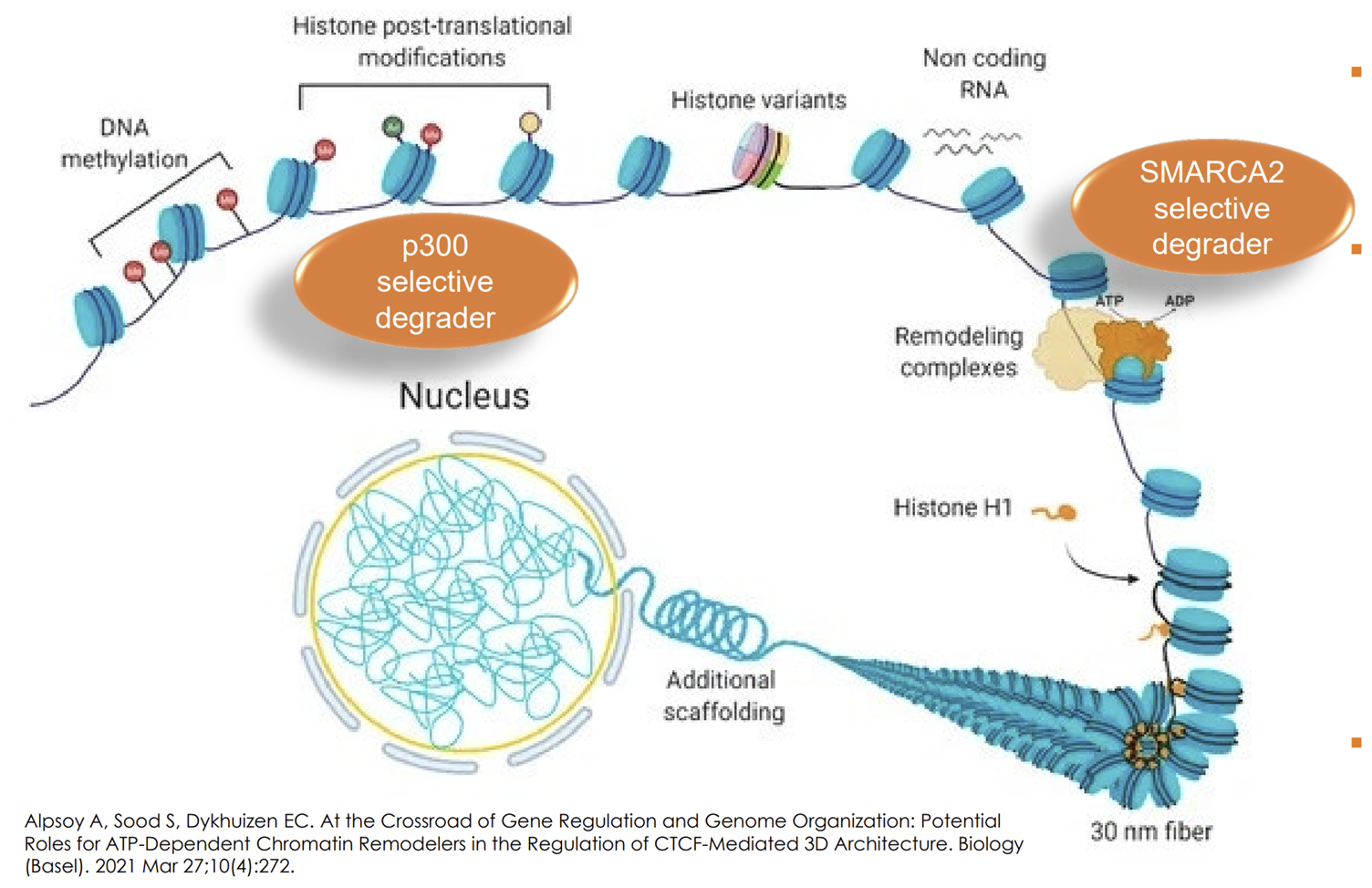Revolutionizing Cancer Therapy: Insights from SK Life Science Labs Dr. Mohammad on p300 and SMARCA2 Targeted Protein Degradation Technologies
In this insightful interview, Dr. Mohammad from SK Life Science Labs, shares profound insights into the revolutionary field of cancer therapy focusing on epigenetic mechanism targeting. This discussion sheds light on two novel bifunctional degraders aimed at p300 and SMARCA2, highlighting a significant leap in cancer treatment strategies.
The Role of p300 and SMARCA2 in Cancer Progression
Dr. Mohammad introduces the critical roles of p300 and SMARCA2 in epigenetic regulation, underlining their potential as targets in cancer therapy. The selective degradation of these proteins presents a promising avenue for addressing the complexities of cancer growth and metastasis, offering hope for more effective treatments.

Innovative Approaches to Targeted Protein Degradation
Delving into the science behind targeting epigenetic mechanisms, Dr. Mohammad elaborates on the purpose and development of bifunctional degraders. These innovative compounds are meticulously designed to disrupt cancer progression by selectively targeting and degrading pivotal proteins involved in epigenetic regulation.
Pioneering Findings: The Impact of p300 and SMARCA2 Degraders
The results from their research are compelling, demonstrating that the p300 degrader effectively inhibits cancer cell growth in cases with CBP mutations and in castration-resistant prostate cancer preclinical models. Similarly, the SMARCA2 degrader shows significant efficacy in cancer cells lacking SMARCA4, marking a significant advancement in cancer therapy.
Exploiting Cancer Vulnerabilities through Synthetic Lethality
The concept of synthetic lethality underpins the therapeutic strategy of targeting p300 and SMARCA2. By exploiting specific vulnerabilities in cancer cells with mutations in closely related paralog proteins CBP and SMARCA4, respectively, these degraders offer a sophisticated approach to cancer therapy, paving the way for precision medicine.
Evaluating the Efficacy and Safety of Novel Degraders
Through a comprehensive assessment using biochemistry, cell biology, and animal models, Dr. Mohammad’s team evaluates the selectivity, efficacy, and safety of the degraders. Their methodical approach ensures that these therapeutic agents not only target cancer cells effectively but also minimize potential toxicities.
In conclusion, Dr. Mohammad discusses the promising future of epigenetic mechanism targeting in clinical applications. The selective degraders for p300 and SMARCA2 not only exemplify the potential for more precise cancer treatments but also highlight the shift towards personalized medicine in oncology.
©www.geneonline.com All rights reserved. Collaborate with us: service@geneonlineasia.com









